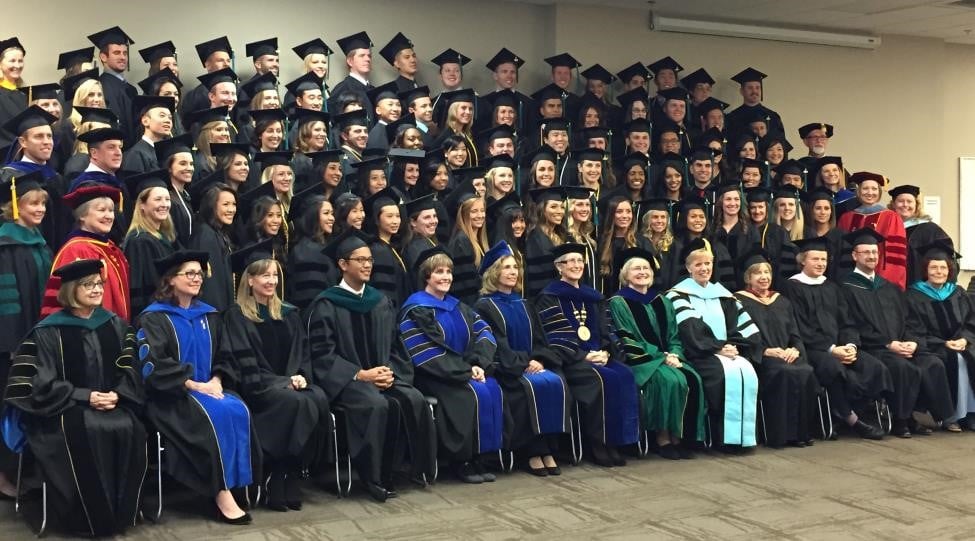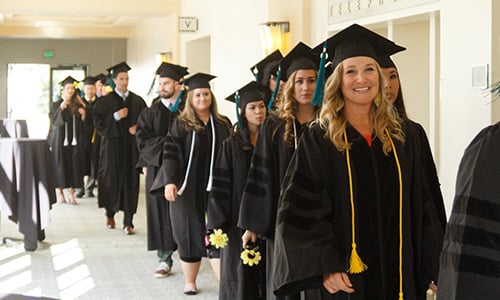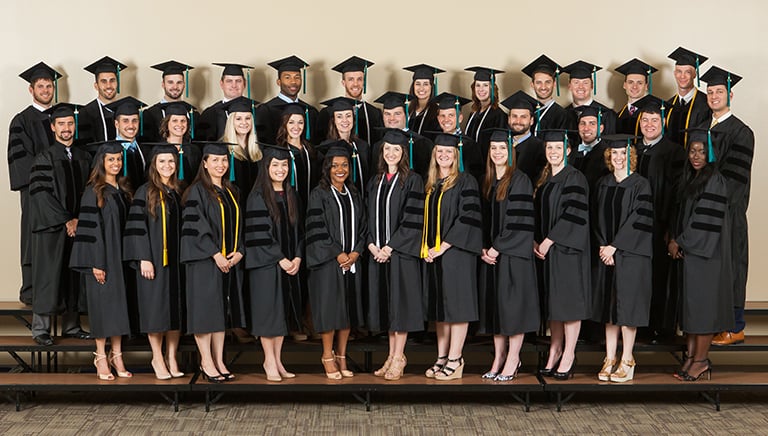
Inside Higher Ed reports that college students are experiencing high levels of anxiety and depression, a circumstance that is impacting their academic journey and college experience.
According to a 2023 Student Voice survey, professors are the primary group students deem responsible for providing stress and mental health support. Survey respondents shared several ways professors might aid students – from eliminating the lowest assignment grade, avoiding high-stakes assignments, and, when appropriate, allowing for flexibility for students struggling with mental health issues.
Caprice Quinones, PT, DPT, Assistant Professor of physical therapy (PT) programs at the Miami campus of the University of St. Augustine for Health Sciences (USAHS), is dedicated to providing support for her students. She gained direct experience in understanding how meeting a student facing challenges at their current level can positively influence their overall academic achievement and offer a fresh perspective for recognizing success.
Dr. Quinones talks with Inside Higher Ed about her commitment to encouraging students’ resiliency and why that’s a critical endeavor.


Caprice Quinones, PT, DPT, Assistant Professor of physical therapy (PT) programs at the Miami campus of the University of St. Augustine for Health Sciences (USAHS)
Cultivating academic growth through adversity
At USAHS, Dr. Quinones teaches a neuromuscular course for upper-level doctoral students, with a competency practical exam.
During a testing day, Dr. Quinones explains that she walked into the testing room and found a student on the verge of panic. The student burst into tears as soon as Dr. Quinones inquired about her well-being.
Dr. Quinones shared that the student was experiencing a crisis at home and doubted her academic ability. She failed another practical earlier that week and struggled with other coursework.
“She felt like a failure,” she says, “She hadn’t even taken the practical yet, and she already felt like a failure.”
Dr. Quinones shared her personal story. She related to the student’s experience and listened to her share her rising pressures to be a good sister and daughter and excel academically.
“At that moment, I realized I was no longer her professor, but rather one human being listening to…another,” Quinones says. “It was a silver lining moment between us as I expressed that I, too, was not perfect.”
Dr. Quinones offered the student compassionate guidance and referred her to seek on-campus services for mental and academic health support.
A few weeks later, the student told Dr. Quinones that their conversation had a transformative effect. She said she had newfound confidence and a new outlook “simply from being heard and seen by an encouraging professor.”
The student’s academic performance enhanced, and she went on to mentor fellow students in need.


Nurturing student success through faculty investment
Inside Higher Ed shares how approachability and forged connections with students can yield significant rewards like promoting empathy and improving student engagement. The article spotlights several examples of professors who have implemented this approach, particularly since the pandemic.
Dr. Quinones is inspired to invest in the next generation of health practitioners. “Looking back on this interaction I had with my student only showed me why I continue to do what I do every day,” she says.


Instructors are responsible for promoting student passion and engagement, which is sometimes challenging. Dr. Quinones sees fear of failure as a root cause.
“However, all studies on highly successful individuals agree that it is the way you cope with failure that shapes you, not the failure itself, which is why I advocate to my students that ‘If we learn from experience, there can be no such thing as failure,’” Dr. Quinones says.
She tells her students that dedication is more important than being the smartest in the classroom. “My best advice to them is never give up,” she says. She encourages them to highlight their strengths and share their stories to inspire other students.
Read the Inside Higher Ed article featuring Dr. Quinones.
At USAHS, you’ll belong to a cohort of peers learning under the mentorship of expert faculty practitioners. Our University is committed to meeting students where they are at and guiding them along their academic journey.
Ready to choose the PT learning path that fits your lifestyle? Learn more about USAHS’ dynamic PT programs and apply today.








